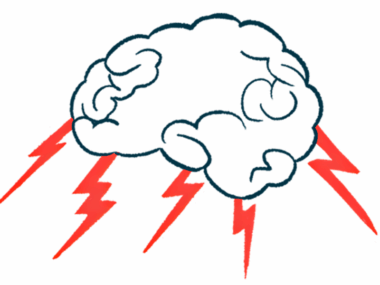Adaptive DBS may move to pivotal clinical trial after $14M raised
With financing round, Newronika looks toward 'clinical validation' of AlphaDBS
Written by |

Newronika plans to use the 13.6 million euros (about $14.3 million) raised in a funding round to support what could be a pivotal clinical trial of its adaptive deep brain stimulation (DBS) system, designed to adjust treatment in real time to better control the symptoms of Parkinson’s disease and minimize side effects.
Announcement of the series B financing round’s close followed on the heels of a U.S. Food and Drug Administration decision to issue an investigational device exemption to Newronika covering its adaptive DBS system, the company reported earlier this month. This exemption allows an investigational device to be shipped for use in a clinical safety and efficacy study in the U.S.
“We are thrilled with the strong support from both new and existing investors,” Lorenzo Rossi, PhD, Newronika’s co-founder and CEO, said in the most recent company press release. “This Series B round validates our commitment to transform the way [DBS] is delivered.”
This “significant influx of capital will empower Newronika to expand the clinical validation and commercialization of its proprietary adaptive DBS system,” the release stated.
Ongoing trial into AlphaDBS given as adaptive and conventional treatment
A small clinical study (NCT04681534), which opened in 2021, is comparing the safety and tolerability of the company’s AlphaDBS system, as it’s called, given as adaptive DBS and conventional DBS in about 15 patients with idiopathic (unknown cause) Parkinson’s at sites in Italy, the Netherlands, and Poland. Secondary goals, also evaluated after one month of treatment, concern the device’s potential effectiveness and include changes from the study’s start in Parkinson’s motor symptoms and in dyskinesia, or uncontrolled and involuntary movements. The trial is due to finish by year’s end.
AlphaDBS has been given the CE mark in the European Union, meaning it has met established safety and health requirements.
Parkinson’s motor symptoms result from the loss of dopaminergic neurons, the nerve cells in the brain that release dopamine, a chemical messenger involved in motor control. This loss can lead to abnormal brain activity.
DBS involves the surgical implantation of thin wires, known as leads, into targeted areas of the brain. These leads are connected to a small neurostimulator device typically placed in the chest. The device delivers controlled electrical impulses to the brain, helping to normalize its activity and alleviate motor symptoms.
Adaptive DBS raises possibility of automatic stimulation adjustments
Unlike conventional devices, which deliver stimulation at a constant rate, Newronika’s adaptive AlphaDBS system is a smart neurostimulator designed to adjust the electrical signals sent to the brain in real time. It reads brain signals in areas being stimulated and adapts automatically to provide the amount of current needed by a patient at given moments. The goal is to bring about better control of motor symptoms, while minimizing side effects.
As such, AlphaDBS may allow for personalized therapy. “We aim to seamlessly integrate real-time neural data and machine learning into our DBS systems to create truly personalized therapies that surpass the capabilities of existing devices on the market,” Rossi said.
The series B financing round was led by a new investor, Italy’s Fondazione ENEA Tech e Biomedical, with additional contributions from existing investors: Indaco Venture Partners, Innogest, Wille Finance, TNBT Capital, and F3F.
“With Newronika and its adaptive DBS platform, we see extraordinary potential to revolutionize the treatment of movement disorders on a global scale,” said Maria Cristina Porta, general manager of Fondazione ENEA Tech e Biomedical, an Italian foundation that invests in biotechnology and medical devices.
This “innovative approach, capable of real-time, personalized neuromodulation, perfectly aligns with our vision of supporting disruptive medical technologies,” Porta added.
Besides supporting what might be a pivotal safety and efficacy clinical trial of AlphaDBS, funds raised will be used to help develop new products in the company’s pipeline, recruit experts, and build partnerships, Newronika reported.



